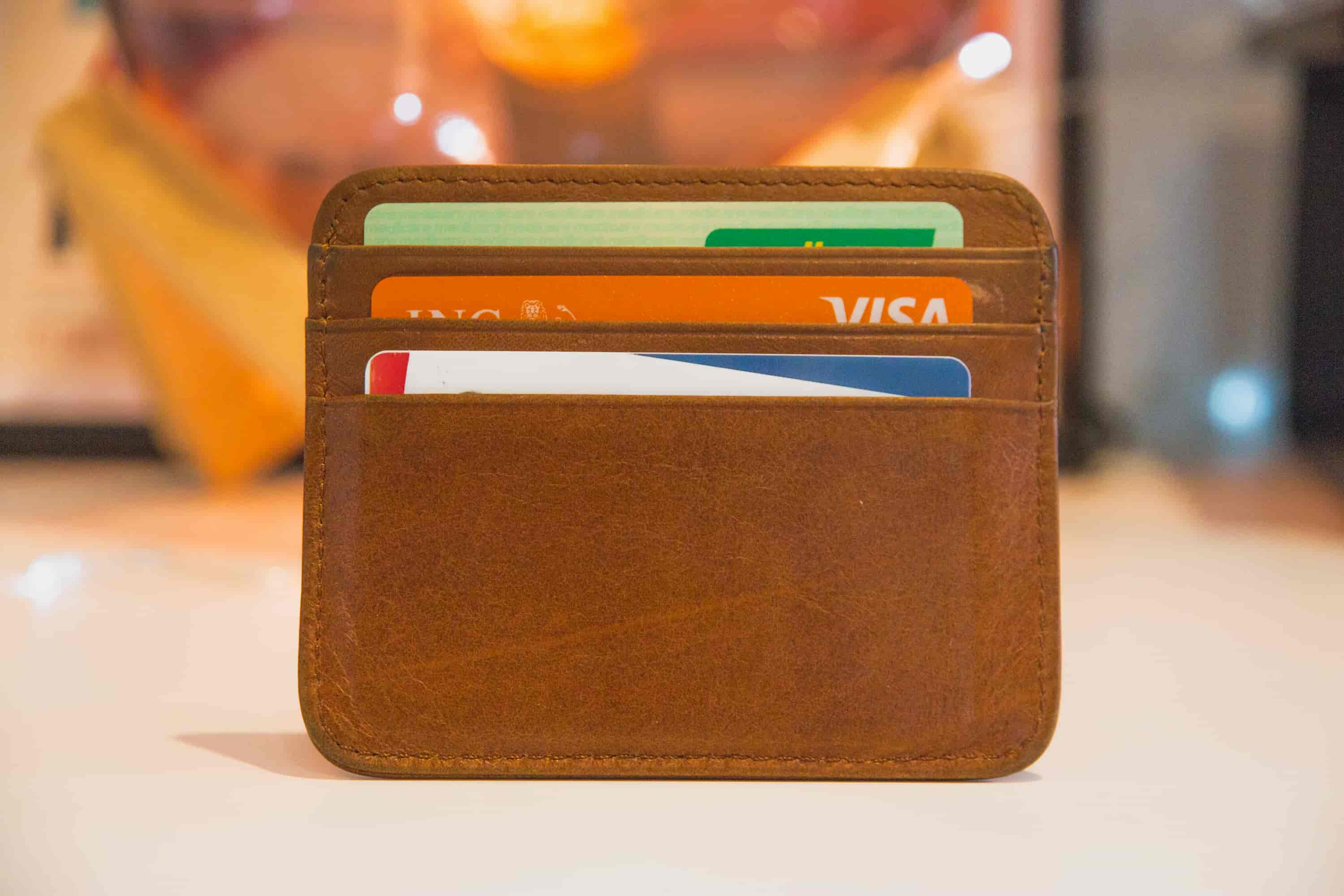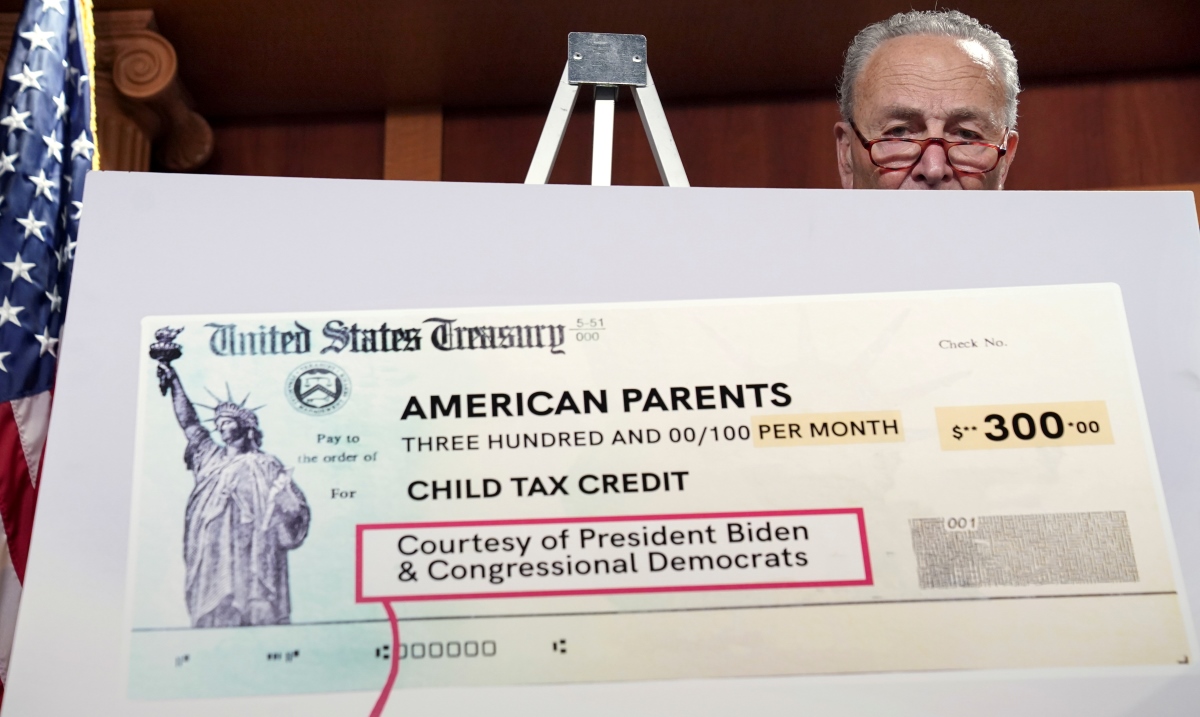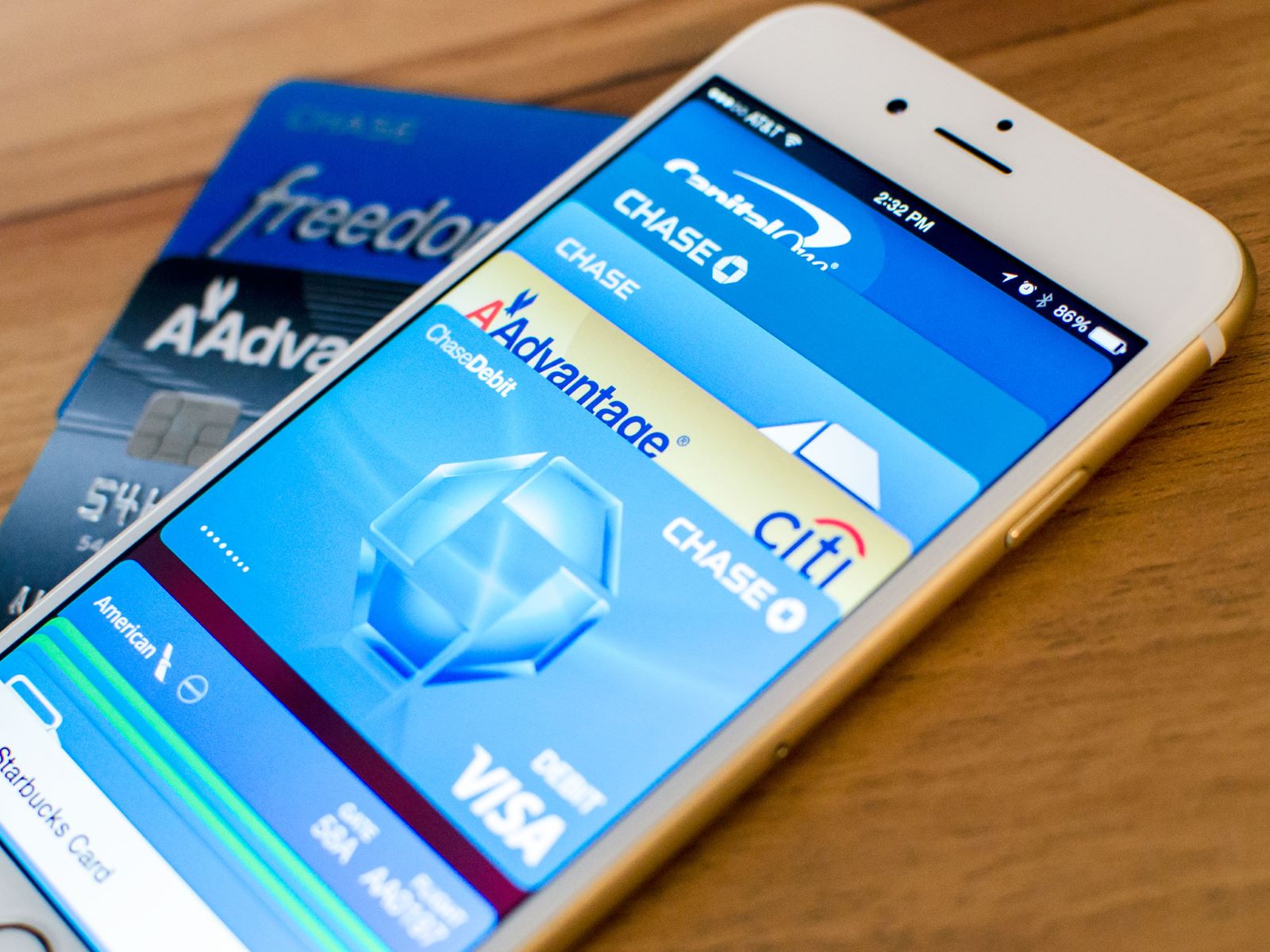

Finance
How To Build Childs Credit
Published: January 11, 2024
Learn how to finance and build credit for your child with our comprehensive guide. Teach them important financial skills and set them up for a successful future.
(Many of the links in this article redirect to a specific reviewed product. Your purchase of these products through affiliate links helps to generate commission for LiveWell, at no extra cost. Learn more)
Table of Contents
- Introduction
- Why Building a Child’s Credit is Important
- Understanding the Basics of Credit
- Steps to Build a Child’s Credit
- Explaining the Concept of Credit
- Opening a Joint Credit Card
- Becoming an Authorized User
- Co-Signing for a Small Loan
- Benefits of Building Credit from an Early Age
- Risks and Considerations
- Conclusion
Introduction
Welcome to the world of personal finance, where building credit is a fundamental pillar of financial success. While most people associate credit with adulthood and financial independence, it’s never too early to start building credit, even for children. Yes, you read that right – building credit for your child can provide them with a head start on their financial journey.
Financial literacy is an essential skill that children should learn from a young age. Teaching them about money management, budgeting, and the importance of credit can set them up for a solid financial future. By building a child’s credit, you can help them establish a positive credit history and develop responsible financial habits that will benefit them for years to come.
In this comprehensive guide, we will explore why building a child’s credit is important, the basics of credit, and the steps you can take to help your child build credit. We will also discuss the benefits of building credit from an early age, as well as some important risks and considerations to keep in mind. By the end of this guide, you will have a clear understanding of how to give your child a head start in building a solid financial foundation.
Why Building a Child’s Credit is Important
At first glance, the idea of building credit for a child may seem unnecessary or even unusual. However, there are several important reasons why it’s beneficial to start building a child’s credit from a young age.
- Establishing a Credit History: A strong credit history is crucial for future financial endeavors. By helping your child build credit early on, they will have a head start in establishing a positive credit history. This can make it easier for them to qualify for loans, mortgages, and credit cards in the future.
- Teaching Financial Responsibility: Building credit for a child provides an opportunity to teach them about financial responsibility. They can learn how credit works, the importance of making payments on time, and the impact of credit on their financial future. This early exposure to responsible credit behavior can set a solid foundation for their financial habits as adults.
- Opportunities for Financial Independence: Building credit for a child opens doors to financial independence. When they reach adulthood, they will have the necessary creditworthiness to obtain their own credit cards or loans without relying on a co-signer. This can empower them to make independent financial decisions and take control of their own finances.
- Building a Safety Net: Life is unpredictable, and there may be instances where your child needs access to credit, such as emergency expenses or unforeseen circumstances. Having a solid credit history can provide them with a safety net to handle such situations with ease.
- Education and Employment Opportunities: Certain educational institutions and job opportunities may require a credit check as part of the application process. By building credit for your child, you can help them gain an advantage when it comes to accessing these opportunities. A strong credit history can make them a more attractive candidate to universities, potential employers, or even landlords in the future.
Overall, building a child’s credit is a proactive approach to financial planning. It sets the stage for financial success and provides them with valuable knowledge and skills that will benefit them throughout their lives.
Understanding the Basics of Credit
Before diving into the steps of building a child’s credit, it’s important to have a solid understanding of what credit is and how it works. Credit is essentially a measure of a person’s ability to borrow money and repay it over time. It is represented by a credit score, which is a numerical representation of an individual’s creditworthiness.
There are several key factors that contribute to a person’s credit score:
- Payment History: This accounts for the largest portion of the credit score and reflects how consistently payments have been made on past debts, such as credit card bills or loan payments.
- Amount Owed: This takes into consideration the total amount of debt owed by an individual, including credit card balances, loans, and mortgages.
- Length of Credit History: This factor assesses the length of time that accounts have been open and how long it has been since they were last used. A longer credit history generally indicates greater creditworthiness.
- New Credit: This considers the number of recently opened accounts, credit inquiries, and the overall credit mix. Opening multiple new accounts within a short period of time may have a negative impact on the credit score.
- Credit Mix: This refers to the different types of credit being used, such as credit cards, loans, or mortgages. Having a diverse credit mix can positively impact the credit score.
It’s important to remember that credit scores range from 300 to 850, with a higher number indicating a better creditworthiness. A good credit score is typically considered to be around 700 or above.
Now that you have a better understanding of credit and how it is assessed, let’s explore the steps you can take to help your child build a positive credit history.
Steps to Build a Child’s Credit
Building a child’s credit involves taking proactive steps to establish their credit history and set them up for future financial success. Here are some key steps to consider:
- Explaining the Concept of Credit: Start by explaining to your child what credit is and how it works. Teach them about the importance of responsible credit behavior, such as making payments on time and keeping credit card balances low.
- Opening a Joint Credit Card: One effective way to help your child build credit is by opening a joint credit card account. This allows them to have a credit card in their name, while you act as a co-signer. Make sure to choose a credit card with a low limit and monitor the child’s usage closely to ensure responsible credit practices.
- Becoming an Authorized User: Another option is to add your child as an authorized user on your credit card. This allows them to benefit from the positive credit history associated with your account. However, it is essential to establish clear guidelines and boundaries with your child regarding card usage and responsible repayment.
- Co-Signing for a Small Loan: If your child needs to take out a small loan, such as for a car or education expenses, you can consider co-signing the loan. This will enable them to build credit by demonstrating responsible repayment behavior.
It’s important to note that these steps should be approached with caution. Building credit for a child requires proper education and guidance to prevent them from falling into debt or developing irresponsible credit habits. As a parent or guardian, it is your responsibility to educate them about the importance of credit and ensure they understand the consequences of mismanaging it.
Additionally, it’s crucial to regularly monitor your child’s credit activity and address any issues promptly. By staying informed and proactive, you can help your child build a strong credit foundation that will serve them well in the future.
Explaining the Concept of Credit
The first step in building a child’s credit is to provide them with a clear understanding of what credit is and how it works. It’s essential to explain the concept in a way that they can grasp and relate to. Here’s how you can approach it:
Start with the Basics: Begin by explaining that credit is a system used by banks and lenders to determine if a person is trustworthy enough to borrow money. Emphasize that credit is not free money, but rather a loan that needs to be paid back.
Use Real-Life Examples: Illustrate the concept of credit by using relatable examples. For instance, you can explain that using a credit card is similar to borrowing money from a friend, and just like you would have to pay back your friend, you have to repay the credit card company.
Discuss Credit Scores: Introduce the idea of credit scores, explaining that it’s a numerical representation of how well a person manages their credit. Mention that responsible credit behavior, such as making payments on time and keeping credit card balances low, can help improve one’s credit score.
Highlight the Importance of Credit: Help your child understand why credit is important. Explain that having good credit will make it easier for them to get loans, secure housing, and even find employment in the future. Encourage them to see credit as a tool that can provide opportunities and financial stability.
Answer Questions: Throughout your conversation, be open to answering any questions your child may have. Address their concerns and ensure they have a clear understanding of the concept of credit before moving on to the next steps.
By explaining the concept of credit to your child, you are laying the foundation for their financial education. This knowledge will empower them to make informed decisions regarding their credit and develop responsible credit habits from an early age.
Opening a Joint Credit Card
Opening a joint credit card account is an effective way to help your child build credit while providing them with a sense of financial responsibility. Here’s how it works:
Choose the Right Credit Card: Research and compare credit cards to find one that suits your needs and offers favorable terms for building credit. Look for cards with low interest rates, minimal fees, and a reasonable credit limit.
Add Your Child as a Joint Account Holder: Contact the credit card issuer and request to add your child as a joint account holder. This means that both you and your child will be responsible for the card’s usage and repayment.
Set Spending Limits and Ground Rules: Before handing over the card to your child, establish clear spending limits and ground rules. Communicate your expectations regarding responsible credit card usage, such as paying the bill on time and staying within the agreed-upon spending limit.
Monitor Card Activity: Regularly monitor your child’s credit card activity to ensure they are using it responsibly. Review monthly statements together and discuss any questionable or excessive charges. This monitoring process will help teach them how to stay accountable for their spending.
Encourage Responsible Credit Habits: Use the joint credit card as an opportunity to teach your child about responsible credit habits. Emphasize the importance of paying the bill in full and on time each month to avoid accruing interest charges. Teach them how to read and understand a credit card statement, including payment due dates and transaction details.
Discuss the Impact on Credit Score: Help your child understand how their credit behavior can impact their credit score. Explain that making timely payments and maintaining a low credit utilization ratio can positively affect their credit score, while missing payments or maxing out the card can have a negative impact.
Gradually Transition Responsibility: As your child demonstrates responsible credit card usage, gradually transition more responsibility to them. Increase their credit limit or consider removing yourself as a joint account holder once you are confident in their ability to handle the card independently.
Opening a joint credit card allows your child to start building their credit history under your guidance and supervision. It helps them learn how to manage credit responsibly and builds their understanding of credit card usage and financial accountability. Remember, the ultimate goal is to empower them to make informed financial decisions and develop sound credit habits that will serve them well in the future.
Becoming an Authorized User
Becoming an authorized user on someone else’s credit card is another strategy to help your child build credit. Here’s how it works:
Select the Right Credit Card: Choose a credit card that you have a strong credit history with and that offers favorable terms. Look for a card that has a low balance and a good payment history.
Add Your Child as an Authorized User: Contact the credit card issuer and request to add your child as an authorized user on the card. This allows them access to the card and its credit limit, but they are not legally responsible for repaying the debt.
Set Boundaries and Expectations: Establish clear boundaries and expectations with your child regarding card usage. Communicate that the card is to be used responsibly and for necessities only. Discuss the consequences of misusing the card and encourage responsible spending habits.
Monitor Card Activity: Regularly monitor your child’s credit card activity to ensure they are using it responsibly. Review monthly statements together and discuss any questionable or excessive charges. This monitoring process will help teach them how to stay accountable for their spending.
Explain the Impact on Credit: Help your child understand that their credit history is linked to yours as an authorized user. Explain that consistent, positive credit behavior on the card can contribute to building a solid credit history, while negative behavior, such as missed payments, can harm their credit score.
Focus on Education: Use the authorized user status as an opportunity to educate your child about credit and responsible financial habits. Teach them about the importance of making payments on time, the dangers of accumulating too much debt, and the benefits of maintaining a good credit score.
Transition to Independent Credit: When your child demonstrates responsible credit card usage and is ready for independent credit, you can help them apply for their own credit card or loan. This allows them to establish a credit history independent of being an authorized user.
Becoming an authorized user on someone else’s credit card can provide your child with a valuable opportunity to build credit. However, it’s important to maintain open communication, set boundaries, and emphasize responsible credit behavior. By doing so, you empower your child to develop healthy financial habits and establish a solid credit foundation for their future.
Co-Signing for a Small Loan
Co-signing for a small loan can be an effective way to help your child build credit while providing them with the opportunity to manage and repay debt responsibly. Here’s how it works:
Choose the Right Loan: Look for a small loan that your child needs, such as a car loan or a personal loan for educational expenses. Make sure the loan amount is manageable and within their means to repay.
Discuss Loan Repayment Terms: Review the loan repayment terms with your child, including the interest rate, monthly payment amount, and duration of the loan. Ensure they understand their responsibility to make payments on time.
Co-Sign the Loan: Visit the lender together and sign the loan agreement as the co-signer. By co-signing, you are legally agreeing to take responsibility for the loan if your child is unable to make the payments.
Monitor Loan Repayment: Regularly check in with your child to ensure they are making timely payments on the loan. Discuss the importance of paying off the loan as agreed to build a positive credit history.
Encourage Responsible Financial Habits: Use the loan experience as an opportunity to teach your child about responsible financial habits. Emphasize the importance of budgeting, prioritizing debt repayment, and avoiding excessive borrowing in the future.
Gradually Transition Responsibility: As your child demonstrates responsible repayment behavior and builds their credit history, encourage them to gradually take full responsibility for their loans. This transition will help them develop independence and strengthen their financial skills.
Consider Alternative Options: If you are hesitant to co-sign a loan or prefer not to take on the financial risk, you can explore alternative options. For instance, you can provide a small loan directly to your child, acting as the lender yourself. This allows them to build credit while maintaining greater control over the repayment terms.
Co-signing for a small loan can be a valuable learning experience for your child as they navigate the world of credit and debt. However, it’s important to approach co-signing with caution and ensure that your child fully understands the responsibility and commitment involved. By instilling a sense of financial responsibility and accountability, you can help your child build credit and develop the necessary skills for a successful financial future.
Benefits of Building Credit from an Early Age
Building credit from an early age can provide numerous benefits that will have a lasting impact on your child’s financial future. Here are some key advantages of starting the credit-building journey early:
- Establishing a Strong Credit History: By building credit from a young age, your child can establish a solid credit history. Lenders and creditors look at credit history to assess creditworthiness, and a longer credit history can increase their chances of qualifying for loans, mortgages, and credit cards in the future.
- Developing Responsible Financial Habits: Building credit early teaches your child about responsible financial habits. They learn about the importance of making payments on time, budgeting, and managing credit responsibly. These skills will serve them well as they navigate their financial lives.
- Gaining Financial Independence: Building credit from an early age empowers your child to gain financial independence. By having a positive credit history, they will be better positioned to apply for credit cards, loans, and rental agreements without needing a co-signer. This autonomy fosters a sense of self-confidence and financial responsibility.
- Accessing Better Financial Opportunities: Good credit opens the doors to better financial opportunities. Your child will have access to more favorable interest rates, loan terms, and credit card rewards. They may also be eligible for competitive scholarships, housing options, and job opportunities that require a strong credit history.
- Building a Safety Net: Life is unpredictable, and unexpected expenses can arise. By building credit from an early age, your child creates a safety net that can help them navigate emergencies or unforeseen circumstances. They will have access to credit options, providing a financial cushion during tough times.
Building credit from an early age is an investment in your child’s financial future. It equips them with the knowledge, skills, and opportunities to make informed financial decisions, establish a strong credit history, and navigate the complexities of the financial world with confidence.
Risks and Considerations
While building credit for a child can have numerous benefits, it’s important to be aware of the potential risks and considerations involved. Here are some key points to keep in mind:
Financial Responsibility: Building credit requires a high level of financial responsibility. It’s essential to ensure that your child understands the importance of making payments on time, staying within credit limits, and avoiding excessive debt. Failure to manage credit responsibly can lead to negative consequences, such as damaging their credit score and accumulating debt.
Parental Responsibility: As the parent or guardian, you bear a certain level of responsibility when building credit for your child. Co-signing for a loan or opening joint credit card accounts means that you are equally liable for any missed payments or debt incurred. It’s crucial to assess your own financial situation and comfort level before taking on this responsibility.
Credit Limitations: While building credit from an early age can be beneficial, keep in mind that the credit options available to children are limited. They may only qualify for lower credit limits and fewer credit products compared to adults. It’s important to set realistic expectations and focus on building a positive credit history, rather than solely focusing on the available credit amount.
Data Privacy and Identity Theft: When building credit for a child, it’s crucial to prioritize data privacy and protect their personal information. Safeguard their Social Security number, credit card details, and other sensitive information to mitigate the risk of identity theft or fraud. Regularly monitor their credit reports for any suspicious activity and teach them about online security best practices.
Educational Support: Building credit for a child requires ongoing education and support. Ensure that your child understands the fundamentals of credit, responsible financial habits, and the potential risks involved. As they grow older, continue to provide guidance and advice to ensure they make informed financial decisions.
Long-Term Financial Planning: Building credit is just one aspect of long-term financial planning. Encourage your child to focus on the bigger picture, including budgeting, saving, and investing. Help them understand that credit is a tool to be used responsibly, and their financial success relies on comprehensive financial literacy and planning.
By being aware of these risks and considerations, you can navigate the process of building credit for your child more effectively. Remember to prioritize financial education, responsible credit habits, and ongoing communication to ensure their success in building a strong credit foundation.
Conclusion
Building credit for a child may not be the first thing that comes to mind when thinking about their financial future. However, starting early can provide them with a head start and valuable knowledge that will benefit them for years to come. By explaining the concept of credit, opening a joint credit card, becoming an authorized user, or co-signing for a small loan, you can help your child establish a positive credit history and develop responsible financial habits.
Building credit from an early age offers several advantages. It allows your child to establish a strong credit history, develop financial responsibility, gain financial independence, access better financial opportunities, and build a safety net for unexpected expenses. However, it’s important to be aware of the risks involved, such as the need for financial responsibility, parental responsibility, credit limitations, and data privacy concerns.
As you guide your child through the process of building credit, remember to prioritize financial education, responsible spending, and ongoing communication. Help them understand the long-term implications of credit and the importance of overall financial planning. By equipping them with the necessary knowledge and skills, you are empowering them to make informed financial decisions and set themselves up for a successful financial future.
Building credit for a child is a journey that requires patience, guidance, and a commitment to their financial well-being. With a solid foundation in credit-building, your child will have the tools they need to navigate the world of personal finance and achieve their goals with confidence.














